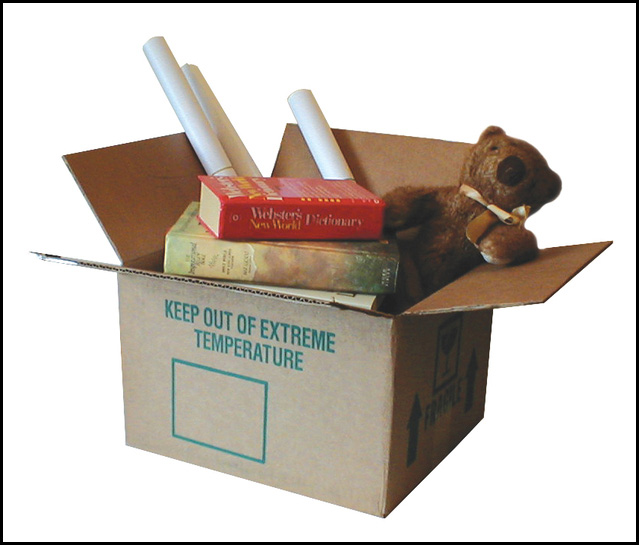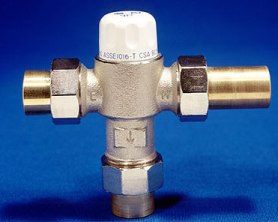
So many people are relocating to the Prescott Arizona area, and as the home inspector I will meet them before the actual move, so figured this blog might have some helpful info to keep in mind prior to any move.
Relocation is often stressful and time-consuming, but rarely do we wonder about the impact the process has on the environment. This is amplified when moving to a smaller house or condominium, and additional decisions have to be made regarding items that must discarded in order to save space. If we don’t make these decisions deliberately, our choices can generate a lot of trash, and waste energy and natural resources. Fortunately, we have other options so that, when the time comes, we can relocate — along with our stuff — responsibly.
Some measures to consider before moving day:
- Buy less. The less you accumulate, the less you will have to discard when it comes time to relocate. Also, fight the urge to be a pack rat by recycling and giving items away as they become obsolete to you. If you put off these decisions until the day you have to relocate, many of the things that you’re on the fence about keeping will likely end up in the trash because you’ll be too preoccupied by the move to put the effort into thoughtful and responsible disposal.
- Discard items in a responsible manner, rather than merely throwing them away. Non-biodegradable trash doesn’t disappear; it just accumulates in new locations where it contaminates groundwater and soil, off-gasses methane and other greenhouse gases, and overwhelms otherwise useful land. By taking a few extra steps, you can save money, help others, and minimize your impact on the environment.
- Sort through your belongings and decide what you don’t want to take with you, separating them into defined groups based on how best to dispose of them. For instance, separate your unwanted items that are in good working order, and can be reused by a friend or neighbor, from other items that require special disposal, such as hazardous chemicals or large, bulky items.
- Hire an environmentally conscious moving company. When searching for a professional service, select a competent expert who is concerned about nature and takes active steps in employing environmentally sound practices. Ask the company:
- Do they encourage the use of used boxes rather than insisting that each customer pay for new
boxes? An environmentally conscious transporter should be happy to take the materials
from you after your move to pass on to his or her next customer. - Are their vehicles fuel-efficient? Ethanol-powered trucks are a bonus, although high mile-per- gallon diesel and gasoline trucks are positive choices, too.
- Moving vehicles may also be fitted with devices that emit a sound to prevent animals from wandering into the road. It may seem trivial, but moving vehicles spend a long time on the road, and these devices can and do save the lives of many animals. In Australia, they use “hopper stoppers” to protect kangaroos. In much of the rest of the world, deer are a bigger problem.
- Do they encourage the use of used boxes rather than insisting that each customer pay for new
- If you don’t use a professional moving company, be smart about boxes and packing materials. Rather than buying these items new, which unnecessarily adds to the expense of moving, find them used. In most cases, old boxes work just as well as new boxes. Liquor stores, grocery stores, hardware and other retail stores are usually happy to give away large cardboard boxes they no longer need and would have to otherwise discard or recycle. Calling around first will save you frustration and the emissions of driving around town to individual stores. You can also ask friends and neighbors if they have materials you can have or borrow. Moving boxes are also popular “freebies” on Craigslist. By following this tip, you will have reduced the number of trees that must be chopped down and boxes that must be manufactured. Also, by reusing boxes and packing material, you keep them out of landfills. When you are finished moving, keep the packing materials for future use, or pass them on to someone else to use.
- Properly dispose of hazardous household items. While cleaning out and packing up the basement, garage or shed, you might run across some products such as cleaners, pesticides and paints, which are corrosive, flammable or otherwise dangerous to the environment and human health, if not disposed of properly. See if your community has special drop-off sites or holds periodic collection days for safe recycling and disposal of these products. Some stores offer free recycling for returned used goods at the point-of-purchase.
Common hazardous substances include:
- cleaning supplies;
- art and photographic supplies;
- spent printer cartridges;
- leftover paints, stains and varnishes;
- light bulbs and fluorescent tubes;
- spent batteries for laptops, digital cameras and other personal electronics;
- old car batteries;
- antifreeze;
- used motor oil; and
- pesticides and weed killer.
Also, beware of hazardous chemicals that may contain gasoline, oil or other toxins. Local environmental agencies across the country have set up programs for homeowners to trade in their old gasoline-powered lawnmowers and electric gardening equipment. Contact your local solid waste collection outfit or environmental agency to inquire about these programs.
In summary, relocation is often hectic and expensive, but it doesn’t have to damage the environment. You can also take easy steps to pare down your material belongings and keep them out of the landfill by reducing, reusing and recycling.











